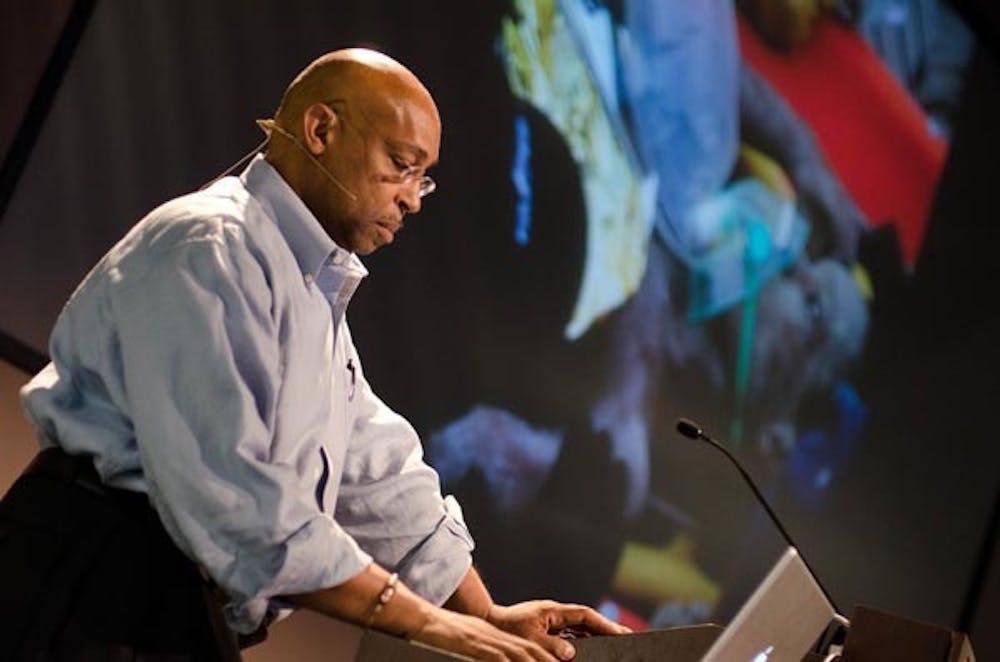Images of natural disasters, elderly caregivers and mistreated war veterans flashed across a big screen at ASU’s journalism school Monday night as Pulitzer Prize-winning photographer Michel duCille talked to students and professionals about the importance of photo journalism and the changing nature of a reporter’s job.
Must See Mondays, the Walter Cronkite School of Journalism and Mass Communication’s weekly speaker series, featured duCille, who has won three Pulitzer Prizes in the categories of spot news, feature and public service.
DuCille, associate managing editor of photography at The Washington Post, said as journalism evolves, journalists must also evolve.
“Over time we have had these huge waves of changes,” he said, pointing to increased use of the Web. “Newspapers aren’t dying, they’re adapting.”
Event attendee Kevin McLaughlin, formerly with the BBC and media creator for mobile phones, said the idea of convergence, or combining different types of media skills, is important for this journalism climate.
“Back in the day, everyone had a specialization,” McLaughlin said. “It’s so difficult now. There’s no such thing as a job for life.”
The Washington Post received a Pulitzer in April 2008 for its coverage of the mistreatment of Iraqi war veterans at Walter Reed Army Medical Center in Washington, D.C. DuCille took the photos for that series and said there was a public response after the stories ran.
“After the story runs, Congress had hearings,” duCille said. “Walter Reed experienced many changes.”
In response to an audience member’s question about his most difficult shoot, duCille pointed to the photos of crack cocaine addicts in the housing projects of Miami for which he won his second Pulitzer in 1985.
“My work changed something in society,” he said. “After that, the government came and did what they were supposed to be doing in the first place.”
He said government agencies began taking a more direct role in making sure poor families could live in drug-free neighborhoods.
Another audience member asked about how much a photographer should manipulate or stage a scene. DuCille said ethically, scenes should be allowed to develop on their own.
Diana Durham, an ASU alumna who attended the event, pointed to this advice and said it was nice being reminded of some basics.
“The reminder of letting things develop the way they should and not interfering and imposing an agenda,” Durham said. “That’s applicable not just to photography.”
Reach the reporter at ymgonzal@asu.edu





